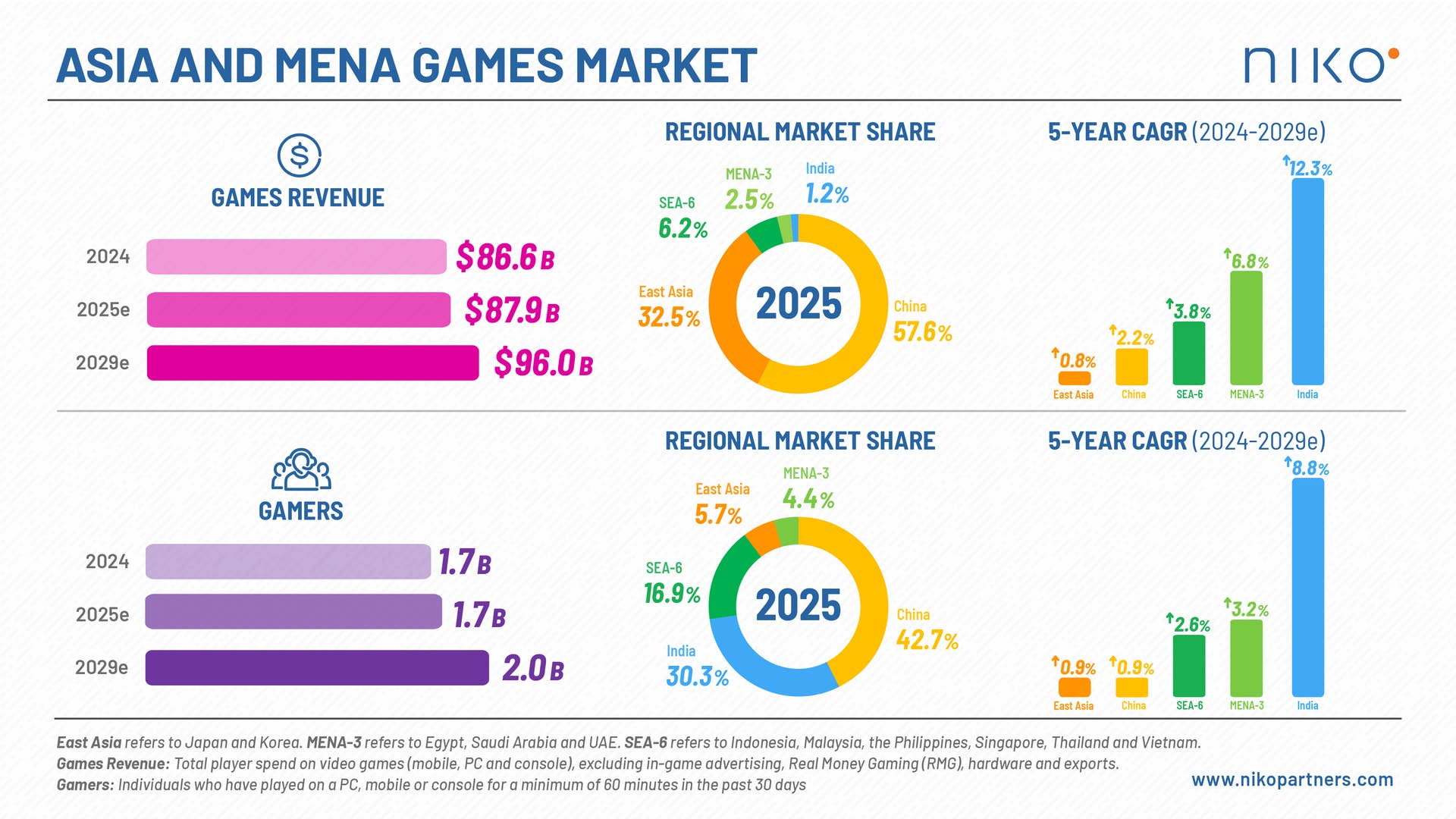The Asia, Middle East, and North Africa (MENA) games markets generated $86.6 billion from player spending on software and services in 2024, marking a 1.4% increase.
That’s according to Niko Partners’ Market Model Reports, which cover 13 markets including: China, India, East Asia (Japan, Korea), Southeast Asia (Indonesia, Malaysia, Philippines, Singapore, Thailand, Vietnam), and MENA (Egypt, Saudi Arabia, and the United Arab Emirates).
The report found that while the revenue growth of these regions “is slower than in previous years” both “remain sources of revenue, innovation, and growth in gaming.”
The market research and consulting firm surveyed 7,885 gamers in the Asia and MENA regions in March 2025 as part of its Games Market Report series.
Niko Partners produces a set of three reports for each market, including the Annual Market Model Report, the Annual Gamer Behaviour & Market Insights Report, and the Six-Month Market Model Update.
The report projects that “the regions’ development will continue reliably through 2029” with revenue estimated to reach $96 billion in Asia & MENA by 2029.

Looking at the individual markets, China grew by 3.6% year-on-year generating $49.2 billion in 2024. It’s forecast to reach revenues of $50.7 billion in 2025.
The firm found that India is “the fastest growing market” it tracked, and predicts that the region will see an additional 250 million gamers in the next five years. It forecasts that by the end of 2025, India will be a “billion-dollar games market”.
Southeast Asia and MENA markets grew by 5.3% and 4.2% respectively last year, with Saudi Arabia leading the growth in MENA at 8.5%.
It reported that Thailand is the “largest and fastest growing market in Southeast Asia,” and is forecasted to reach $2.4 billion in player spending by 2029.
Elsewhere, the report found that players are on the rise across all regions. It noted that over 37% of gamers in the MENA-3 region (Egypt, Saudi Arabia, and the UAE) are women and 40% in India.
Both were markets that “traditionally skewed over 80% male” according to Niko Partners.








